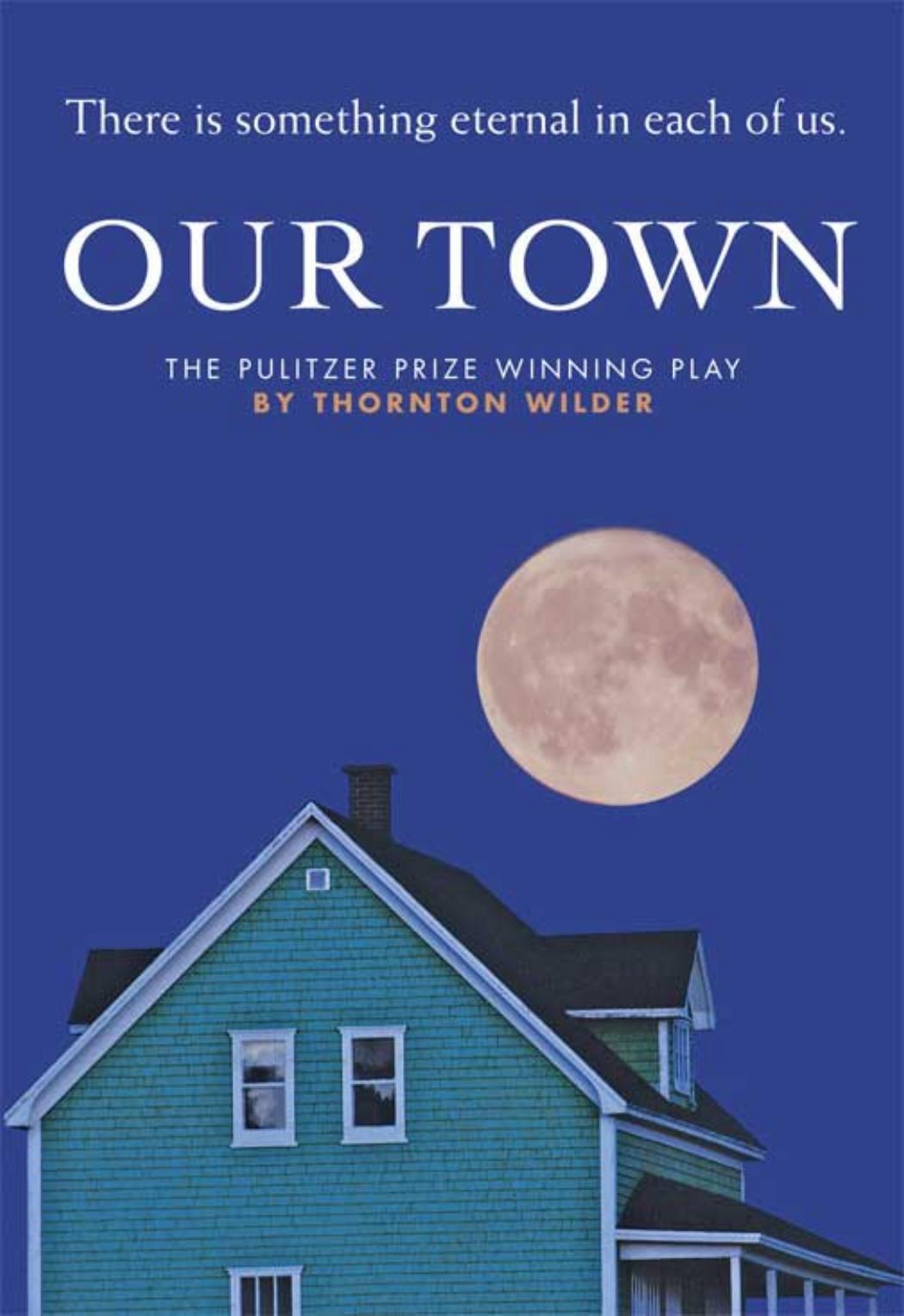Our Town by Thornton Wilder

Author:Thornton Wilder [Sparknotes Editors]
Language: eng
Format: epub, pdf
Tags: Study Guides
ISBN: 9781411478503
Publisher: Spark
Published: 2014-08-21T16:00:00+00:00
Analysis
Professor Willardâs and Mr. Webbâs direct addresses to the audience serve several purposes. First, the fact that the two men appear at the request of the Stage Manager establishes the Stage Manager as an almost godlike authority within the text of the play. He appears to manage everything that happens on the stage, halting the action at will, pulling characters away from their daily activities to converse with the audience, and asking them to leave the stage when their presence is no longer required. Second, Professor Willardâs and Mr. Webbâs reports, as well as Mr. Webbâs question-and-answer session, strengthen the bond between the characters and the audience. The apparently spontaneousâthough actually stagedâinteraction between the audience and Mr. Webb indicates Wilderâs desire for the audience to feel included in the daily life of Groverâs Corners. Third, the presentation of facts about the townâs past and present complements the Stage Managerâs own omniscient knowledge of the townâs events and his foresight of the charactersâ deaths. Wilder implies that an accurate understanding of the town comes not only from meeting its current inhabitants but also from knowing its history. Finally, the two reports underscore how remarkably ordinary the town is, and how racially, ethnically, religiously, and politically homogenous. Professor Willardâs geological references imply that very little has changed throughout the history of Groverâs Corners, and his mention of the stagnant birth and death rates and lack of population change suggests that little change is expected in the future.
Though the character of the town as a whole changes little over the years, individual lives are transient. In the first half of Act I, the Stage Manager reflects upon the fact that Dr. and Mrs. Gibbs and Joe Crowell, Jr. have already died by the time Our Town is performed. In the second half of Act I, time passes quickly and even the Stage Manager mistakes the time, believing it is early afternoon but then realizing it must be later, since he can hear the children on their way home from school. Additionally, the Stage Manager foreshadows the fact that the play deals with both marriage and death before the evening ends when he says that the play details the âmarrying . . . living and . . . dyingâ of the inhabitants of Groverâs Corners. Moreover, Wilder foreshadows Emily and Georgeâs burgeoning romance through their uneasy conversations and through Dr. Gibbsâs comment that George will soon need a larger allowance to take care of unspecified âthingsâ associated with growing older. Wilder foreshadows Emilyâs death by describing her as an exemplary scholar with great potentialâjust like Joe Crowell, Jr., the prized student and engineer who had great potential but was tragically killed in World War I.
A number of scholars and reviewers have criticized the homogeneity of Groverâs Corners, a largely white, Protestant town. Our Town has been derided as an escapist fantasy that ignores the realities of the racism, sexism, and economic hardship that defined American life during Wilderâs era and that continue, to some degree, to define American life today.
Download
This site does not store any files on its server. We only index and link to content provided by other sites. Please contact the content providers to delete copyright contents if any and email us, we'll remove relevant links or contents immediately.
Cecilia; Or, Memoirs of an Heiress — Volume 2 by Fanny Burney(31934)
Cecilia; Or, Memoirs of an Heiress — Volume 3 by Fanny Burney(31925)
Dialogue by Robert McKee(4385)
The 101 Dalmatians by Dodie Smith(3503)
Bound by Hatred (The Singham Bloodlines Book 2) by MV Kasi(3066)
The Art of Dramatic Writing: Its Basis in the Creative Interpretation of Human Motives by Egri Lajos(3057)
Harry Potter and the Cursed Child - Parts One and Two by John Tiffany(3027)
The Beautiful Boys: A High School NA Reverse Harem Paranormal Bully Romance (Shadowlight Academy Book 1) by Gow Kailin(2854)
Angels in America by Tony Kushner(2641)
Carrie's War by Nina Bawden(2463)
A Clockwork Orange by Anthony Burgess(2457)
Unlaced by Jaci Burton & Jasmine Haynes & Joey W. Hill & Denise Rossetti(2359)
The Femme Playlist & I Cannot Lie to the Stars That Made Me by Catherine Hernandez(2280)
Open Book by Jessica Simpson(2259)
Drama by John Lithgow(2228)
Outside Woman (BWWM Amish Romance) by Stacy-Deanne(2105)
Terrorist Cop by Mordecai Dzikansky & ROBERT SLATER(2068)
Yerma by Federico García Lorca(2062)
Leo's Desire by Sundari Venkatraman(1926)
